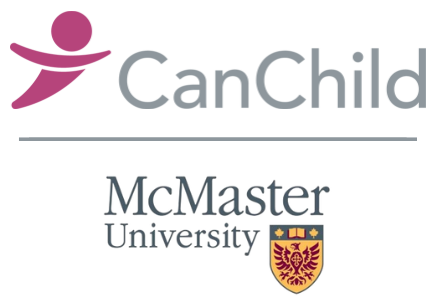Medical practitioners
Several types of medical practitioners, including developmental pediatricians, pediatric orthopaedic surgeons, neurologists and psychiatrists, may become involved in the care of a child with DCD. More typically, however, the family physician or community paediatrician provides primary health care services for DCD children, in collaboration with other allied health professionals. It is particularly important for families to have an ongoing relationship with their family physician for long-term monitoring and follow-up of potential secondary impairments. For a one-page flyer with information and references on DCD written specifically for family physicians, click here.
Occupational Therapists (OTs)
Occupational Therapists focus on children’s occupational performance in self-care, school, play and leisure tasks. An OT looks at the child’s development, strengths and challenges in all areas of performance and determines how these difficulties affect his or her daily functioning. OTs teach the child strategies for learning new tasks, modify tasks and environments to maximize the child’s abilities, and consult to teachers and parents to increase their understanding of the child.
Physical therapists (PT)
Physical therapists focus on physical abilities and motor skill development. A physical therapist will assess a child’s muscle tone, strength, motor skills, balance, endurance and fitness level. Physical therapists also provide consultation to parents and teachers to support the child’s physical development. They may suggest strategies to learn new motor tasks or enhance participation in physical activities, and/or develop interventions to support specific areas of motor difficulty, such as climbing stairs. One of the primary roles of the physical therapist is prevention of the development of secondary impairments.
Optometrists
Optometrists provide vision care. They frequently see young children who are experiencing school difficulties, in order to rule out a visual problem. Children with DCD often present with difficulties in visual tracking and visual-motor coordination that may be identified during an optometrist’s examination.
Psychologists
Psychologists focus on evaluations that provide information about a child’s behaviour, intellectual functioning and academic achievement. A thorough psycho-educational assessment can determine if a child with DCD is also experiencing a specific learning disability and/or attention deficit hyperactivity disorder (ADHD). In addition to evaluation, psychologists may provide therapy and consultation to help the child and family deal with behaviour management, attention, social competence and mental health issues, such as anxiety and depression.
Speech/language pathologists (SLP)
Speech-Language Pathologists focus on the area of communication, specifically the development of speech and receptive and expressive language. SLPs often see children during the preschool years and can be instrumental in identifying children with DCD while they are still young. Speech/ language skills are an important requisite for literacy development and social interaction. Speech/language pathologists may help manage a child’s difficulties with oral and/or written language by providing therapy to the child and/or consultation services to the child’s teacher and family.
